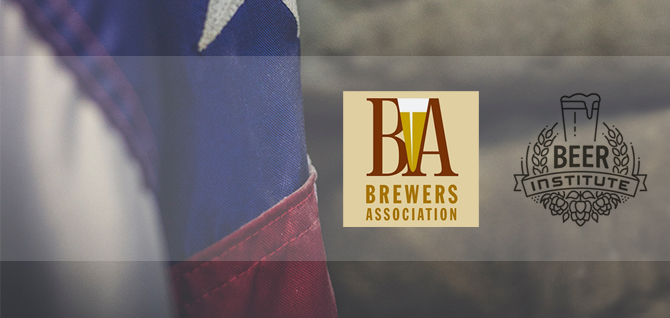
Federal excise tax cuts for brewers and importers have finally been made permanent.
After nearly a week of uncertainty, President Donald Trump on Sunday signed into law the $900 billion economic relief package and $1.4 trillion government funding bill Congress passed last week.
Language from the Craft Beverage Modernization and Tax Reform Act (CBMTRA) was included in the legislative package, achieving a years-long goal of both the Beer Institute (BI) and the Brewers Association (BA).
“The pandemic has decimated the hospitality industry – especially restaurants and bars – and this legislation offers some relief and helps start our economy down the path to the recovery,” BI president and CEO Jim McGreevy said in a press release. “The permanent alcohol excise tax relief contained in this legislation will help support American jobs at a time of significant economic uncertainty.”
Congress included two years of excise tax relief for brewers in the 2017 Tax Cuts and Jobs Act, and extended those cuts by one more year in December 2019. The current rates would have sunsetted at the end of 2020 if Congress had not extended them or made them permanent.
Under the now permanently lowered rates, breweries producing fewer than 2 million barrels annually will pay $3.50 per barrel on the first 60,000 barrels and $16 per barrel after that. For all other brewers and beer importers, the federal excise tax rate will remain $16 per barrel on the first 6 million barrels, while maintaining the $18 per barrel excise tax for brewers producing more than 6 million barrels.
The nation’s 8,300 small and independent craft brewers, brewpubs and taprooms stand to save a collective $80 million annually due to the cuts.
“The permanent excise tax relief will provide essential funds that will drive three new positions, adding to our sales and marketing depth and maintenance capability,” Saint Paul, Minnesota-based Summit Brewing Company founder and president Mark Stutrud said in the BI release. “Furthermore, [we] will be able to accelerate our investment in capital equipment.”
The bill also includes further financial relief for small businesses affected by the pandemic, including $284 billion in additional Paycheck Protection Program (PPP) funding and $20 billion in Economic Injury Disaster Loan (EIDL) grants for small businesses in low income communities. This new round of PPP funding also makes eligible for loans state brewers guilds and other 501(c)(6) organizations.
The U.S. Small Businesses Administration will also accept second PPP applications from small businesses with fewer than 300 employees with books that show a 25% loss in sales in any quarter of 2020 compared to the same quarter of 2019.
Restaurants and other hospitality businesses are eligible to apply for PPP loans to cover three and a half months of payroll, an increase from the two and a half months other businesses are eligible to receive. To qualify, businesses must fall under Code 72 (Accommodations and Food Services) of the North American Industry Classification System (NAICS), which includes businesses described as drinking places.
“Some, but not all, breweries will be eligible for this, depending on their NAICS code,” the BA wrote in a press release.
The bill also includes direct $600 payments to individuals making less than $75,000 annually, which Trump deemed “measly” in a tweet. He refused to sign the bill when it arrived on his desk Tuesday, airing his grievances in a video posted to Twitter that evening. Trump, who has less than a month left in his presidency, insisted that Congress amend the bill to include payments of $2,000 per person, something House Democrats were already pushing for.
Let’s do it. @RashidaTlaib and I already co-wrote the COVID amendment for $2,000 checks, so it’s ready to go.
Glad to see the President is willing to support our legislation.
We can pass $2k checks this week if the Senate GOP agrees to stand down. https://t.co/GprwrUPali pic.twitter.com/nFFs1ExqCK
— Alexandria Ocasio-Cortez (@AOC) December 23, 2020
During Trump’s five-day holdout, extended unemployment benefits expired on Saturday and millions of people missed out on a much-needed payment. The bill extends unemployment benefits, including a $300 weekly federal benefit, into mid-March.